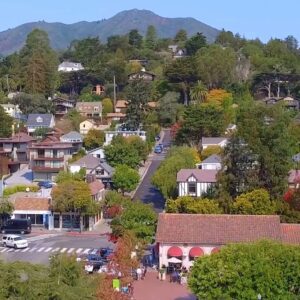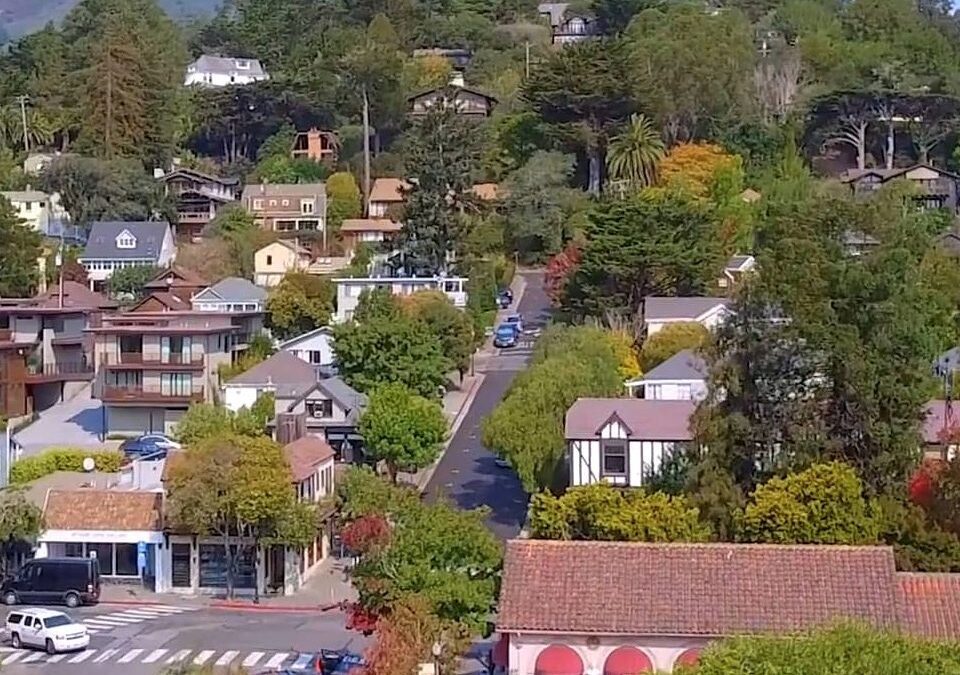 In the wake of three years of economic turbulence from the pandemic – and with plenty of remnants and complexity still dragging our economy – Marin business owners got a dash of good news this month when SmartAsset, an 11-year-old financial technology firm, ranked Marin County tops in California in the relative strength of its small-business sector.
In the wake of three years of economic turbulence from the pandemic – and with plenty of remnants and complexity still dragging our economy – Marin business owners got a dash of good news this month when SmartAsset, an 11-year-old financial technology firm, ranked Marin County tops in California in the relative strength of its small-business sector.
The firm compared overall small-business revenue in relation to population to determine that Marin has the strongest small-business presence and is thus the most attractive for proprietors, with Nevada, Mono, Los Angeles and Orange counties rounding out the top five counties in the state, according to the study. Marin was ranked 47th overall in the entire United States.
The study measured five factors, such as how many people in a county received small-business income in relation to its population; the reported business income; the amount of tax residents might pay on income; and the five-year change of both small-business tax returns and income. It also compared the county’s overall income to its small-business income, and the change over a five-year period.
The highest-ranked counties had the strongest small-business presence based on these qualities and were considered the best places for such enterprises. Based on these factors, 42.3% of Marin’s population filed small-business taxes — almost 10% higher than the second-ranked Nevada County. The study also showed 15.6% of the population claimed small business income.
Mike Blakeley, chief executive officer of the Marin Economic Forum, noted the achievement that most economic growth and job creation comes from small businesses, but he cautioned that while a larger proportion of people in Marin, compared to the rest of the state, file taxes as a business, a business owner might operate nationally and just happen to live in Marin.
Jim Welte, executive director of the Mill Valley Chamber of Commerce, said the study seems to match his understanding: Marin has a lively small-business community. “Four out of the five commercial areas in Mill Valley are centered on small businesses.,” he told the Marin IJ. “Mill Valley is very much a mom-and-pop-centric town.”
Denzel Allen, founder and owner of Strength Den, said Mill Valley has been a great place for his gym, which he’s owned since 2018. He credits some of this to the nature of smaller communities and recommendations from clients.
“Word of mouth goes a long way out here,” he said. “It’s definitely been a positive experience.”
Miriam Karell, director of the Marin Small Business Development Center, was also cautious about calling Marin the best place for such operations. She said while it seems accurate, one thing she does not see reflected is the cost of living. Marin is often considered one of the more expensive counties in the country. While COVID-19 the pandemic has waned, there are still a lot of empty storefronts all over Marin. Karell said the question remains how many businesses will return to fully in-person operations.
Karell said a trend she’s seen in the past year alone is more people looking to sell their businesses, and some that have been open for 20 or 30 years are closing their doors. “The pandemic was the last straw for them,” she told the IJ, noting that the pandemic exacerbated many of the issues small businesses were already facing, such as debt, a tough loan environment, staffing and the cost of materials. She said many businesses are not back to pre-pandemic income levels yet.
Welte said the post-pandemic business environment has been a “mixed bag,” and often hard. He pointed to post-pandemic infrastructure improvements as having a significant impact. In Mill Valley, there were three or four construction projects happening at once, causing struggles for businesses.
“Our business owners are incredibly resilient and creative, and like in any town, found ways through a pretty horrific pandemic and are still finding ways to work through infrastructure updates that, frankly, everyone hates but we all need,” he said.
Joanne Webster, chief executive of the San Rafael Chamber of Commerce, said the study is another reason to support small businesses. “Nearly 90% of all businesses in the county are considered small. They provide tens of thousands of jobs and generate the taxes needed for Marin’s economic engine to run.”
Karell added that small businesses do more than just support the local economy, they boost the quality of life. “As a resident, what makes you thrive?” she said. “Access to groceries, to clothes, to entertainment, to food you don’t have to cook yourself. … I don’t think we realize how much we rely on small businesses, how much they enhance our daily life and our quality of life.”
While big chains could potentially fill those needs, Karell said they are often very different in quality or are not as personable. With a small business, customers often know the owner. “In most cases, when you walk in, the first person you see is the owner, or maybe the owner’s kid,” Welte said.
Allen said small businesses help build community because people have a sense of who the owner is as a person.
“Most small-business owners are using their businesses to help support their life and their livelihood, whereas a lot of bigger franchises don’t necessarily need the income from their business to support their life,” Allen said.

